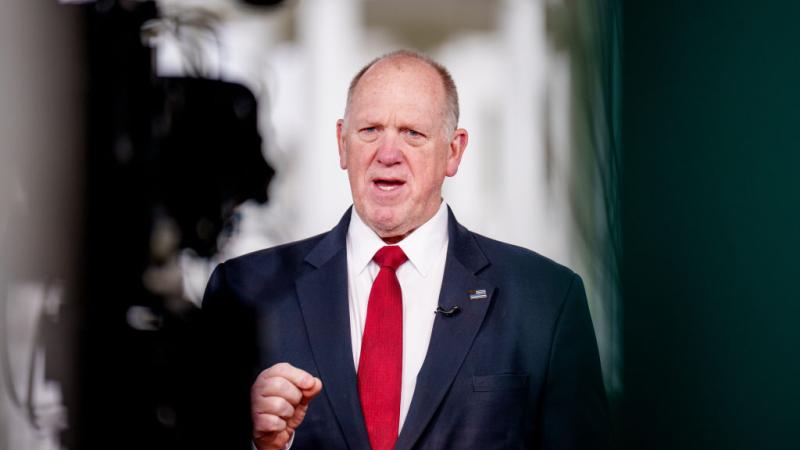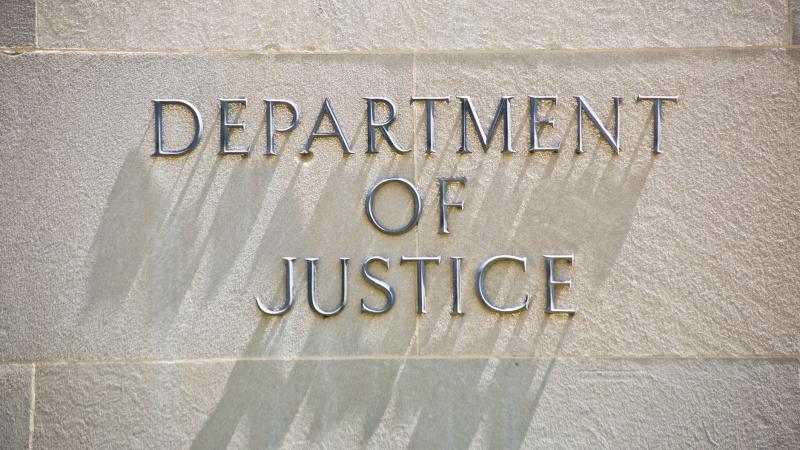No more handouts for all, Trump prioritizing families
The shutdown has placed the spotlight on one of the nation's most vital lifelines: the Electronic Benefits Transfer (EBT) system powering Supplemental Nutrition Assistance Program, or SNAP, benefits for roughly 42 million individuals.
Amid higher food prices and the U.S. government creeping toward four weeks of shutdown that could soon suspend federal funding for nutrition-assistance programs, President Donald Trump is finding ways to prioritize families.
The shutdown began Oct. 1 after Democrats blocked a Republican-led stopgap spending measure over demands to extend enhanced health insurance subsidies. And congressional Democrats' strategy appears to be letting Americans "suffer" for a bit so that they can win the shutdown standoff.
“Shutdowns are terrible," House Minority Whip Rep. Katherine Clark recently told Fox News. "And of course, there will be families that are going to suffer. We take that responsibility very seriously, but it is one of the few leverage times we have.”
Saving SNAP for those who need it
The shutdown has placed the spotlight on one of the nation's most vital lifelines: the Electronic Benefits Transfer (EBT) system powering SNAP, or Supplemental Nutrition Assistance Program, benefits for roughly 42 million individuals. Trump's firm stance against what he considers wasteful spending is forcing Congress to confront decades of fiscal irresponsibility, allowing taxpayer dollars to go to deserving Americans rather than ballooning bureaucratic waste.
Earlier this year, Trump signed the "One Big Beautiful Bill Act of 2025," a landmark package that slashed $186 billion in projected waste over a decade by introducing common-sense work requirements for able-bodied adults.
Critics on the left have warned of "catastrophic" disruptions, but the reality shows resilience under Trump. In October, SNAP benefits, bolstered by a cost-of-living adjustment he championed, landed on time for every recipient, thanks to pre-obligated funds secured before the fiscal year ticked over. That happened as a result of planning in an administration that has shown an ability to anticipate crises rather than walking into them.
Even as November looms with potential delays – due to Democrats' stonewalling on file transmissions to EBT vendors – Trump has already redirected $300 million in tariff revenues to keep afloat critical child nutrition programs like the Women, Infants, and Children (WIC) program, which provides supplemental nutrition for low-income pregnant, postpartum, and breastfeeding women, a well as infants and children up to five years old.
No longer can able-bodied recipients utilize endless benefits without contributing to their communities. Now they must commit to at least 20 hours of work per week, with waivers only in high-unemployment zones above 10%.
The result could be a leaner, stronger safety net. SNAP's contingency reserves – bolstered under Trump's fiscal discipline – is available to bridge any gaps, with up to $6 billion available to cover essentials if needed. During Trump's first term, similar reforms lifted millions off of food stamps by encouraging employment. Now, amid the shutdown, Trump's administration is accelerating these changes, terminating outdated waivers to get Americans back to work sooner.
No tax on tips, overtime, social security
The removal of taxes on tips in the One Big Beautiful Bill Act has increased the take-home pay for service industry workers, providing immediate financial relief to millions of Americans. The policy change is also stimulating local economies by encouraging higher spending from workers who depend on tips for their income.
The elimination of taxes on overtime pay in the bill has boosted the earnings of workers who put in extra hours, allowing them to keep more of their earnings. The policy is also incentivizing increased productivity and supporting economic growth by putting more disposable income into the hands of working Americans.
The removal of taxes on Social Security benefits in the bill has increased the disposable income of retirees who are often on fixed-income, allowing them to keep more of their earned benefits. This policy change is also supporting seniors' financial stability, enabling them to cover living expenses, contribute to their local community, strengthening families.
The bill also expanded access to child care and makes permanent the paid family leave tax credit, helping parents balance work and home life.
Trump has made it clear that he's willing to hold the line until Congress passes a "clean" stopgap measure, known as a continuing resolution, that prioritizes border security, cutting fat from the budget and refocuses on American workers. As the GOP's official communications have hammered home, "Democrats are holding America hostage by demanding healthcare for illegals" while ignoring the needs of veterans, seniors and small businesses.















